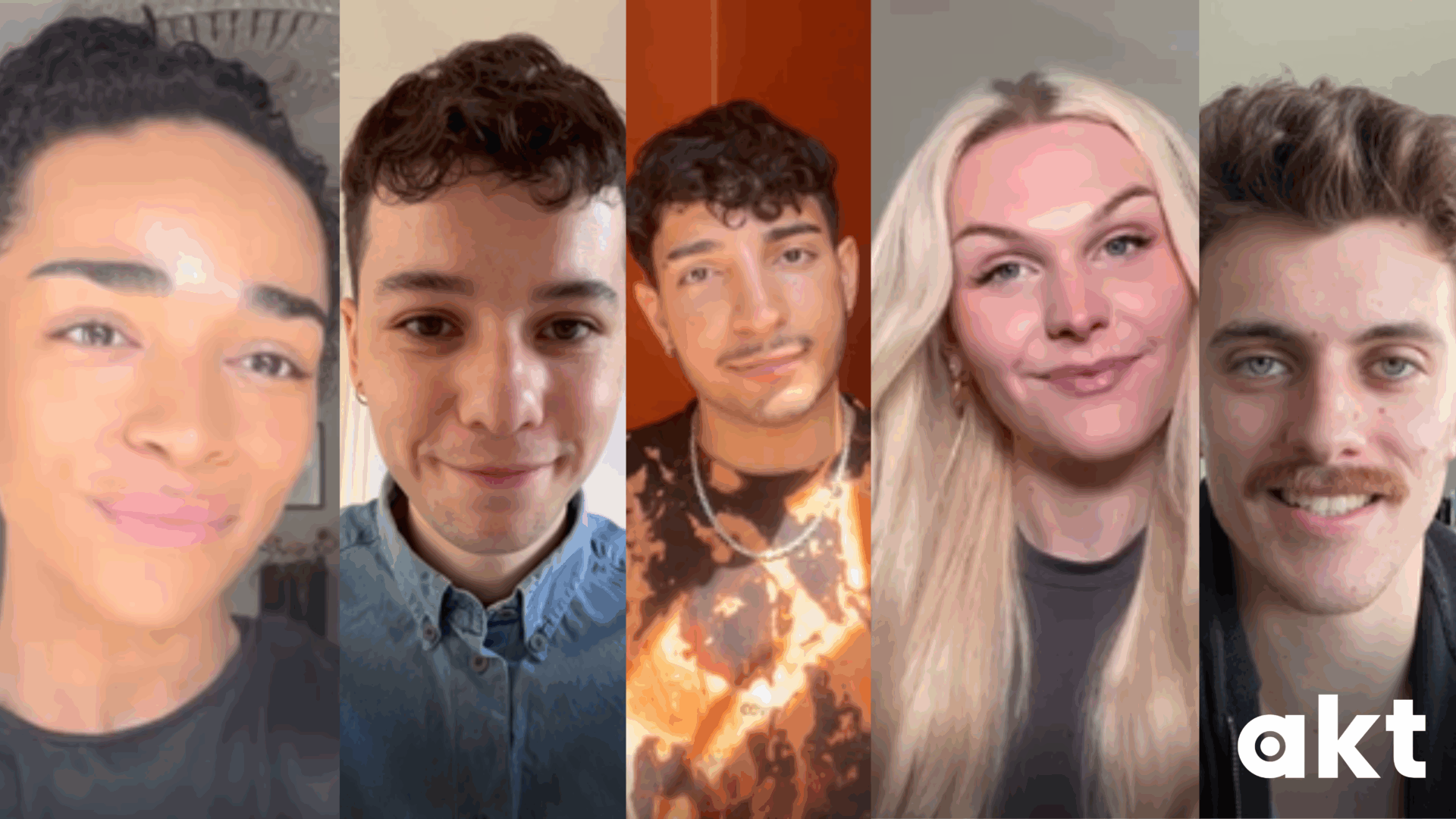The new BBC series What It Feels Like for a Girl is a beautiful and deeply authentic portrayal of queer experience. It’s emotional, honest, and for many LGBTQ+ young people, powerfully real.
At akt, we’ve seen stories like Byron’s time and time again. Young people being made homeless, not because of who they’ve become, but because of who they’ve always been. Homophobia, transphobia and identity-based abuse still exist across the UK, sometimes quietly, sometimes violently, and the impact on young people is devastating.
Let’s be clear: LGBTQ+ youth homelessness is not rare. It’s not something that only happens elsewhere. It’s a national crisis, and one that’s still deeply misunderstood.
Why is this still happening?
For many LGBTQ+ young people, homelessness is rooted in rejection, abuse, or fear, not just the absence of housing.
At akt, the most common reason young people come to us is because they’ve been rejected by their families. In fact, 77% of the young people we support say they became homeless due to family rejection, abuse, or being forced to leave because they are LGBTQ+.
LGBTQ+ youth are also more likely to experience hidden homelessness, staying with strangers, sofa surfing, or squatting, situations that put them at serious risk but are often invisible to mainstream systems. LGBTQ+ people are twice as likely to experience hidden homelessness compared to their non-LGBTQ+ peers.
For trans youth, the risks are even greater. One in three trans youth people in the UK will experience homelessness in their lifetime.
Even when LGBTQ+ young people try to access support, they’re frequently let down. More than 60% report feeling unsafe using mainstream housing services. Many are misgendered, placed in inappropriate single-sex accommodation, or forced to use outdated documentation, adding further trauma to an already distressing situation.
This is why LGBTQ+-inclusive, identity-affirming services like akt are essential.
Byron and Jazz: Two stories, one failing system
In What It Feels Like for a Girl, Byron’s story shows the heartbreak of being rejected by family and then being let down all over again by the systems that are meant to protect you. His isolation, desperation, and invisibility are heartbreakingly familiar.
We saw that same experience in Jazz, a young trans person we supported at akt. Like Byron, Jazz was rejected by their parents at a young age and left to fend for themselves. When they tried to access support, they were told they didn’t qualify, because, technically, they still had a “home,” even though it was unsafe and abusive. They were left to navigate trauma alone, until they found akt.
We didn’t ask them to prove anything. We asked their name. We listened. We helped them into safe, secure housing, and most importantly, we helped them feel seen.
Today, Jazz has a place of their own. They’re safe. They’re free. And while their family still doesn’t accept who they are, they no longer have to choose between a safe home and being themselves.
Why akt exists
At akt, we don’t just provide emergency housing. We offer emergency accommodation to get young people off the streets and into safety, alongside personalised, identity-affirming casework, advocacy, and financial support. Our services also include long-term housing help, mentoring, and connection to inclusive communities, everything a young person needs to feel seen, rebuild their life, and thrive.
We exist because too many LGBTQ+ young people are still being let down by the systems that should keep them safe.
Because no LGBTQ+ young person should have to choose between a safe home and being themselves.

